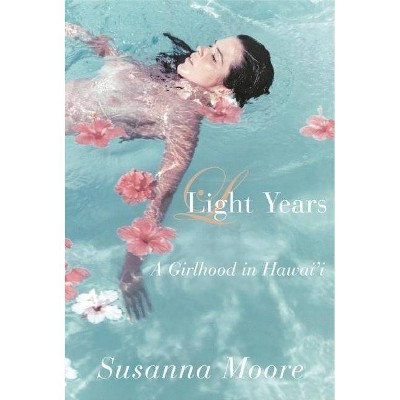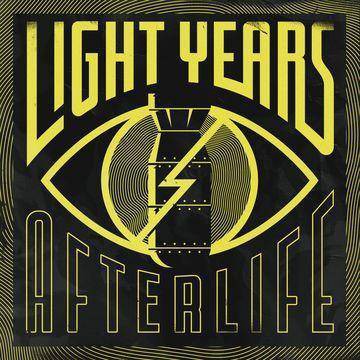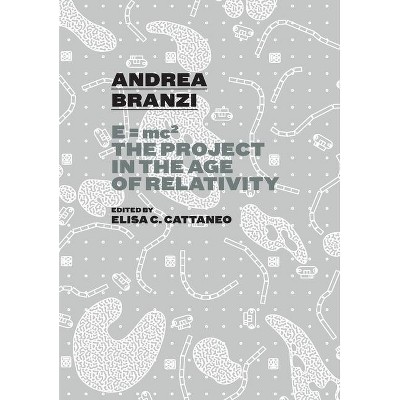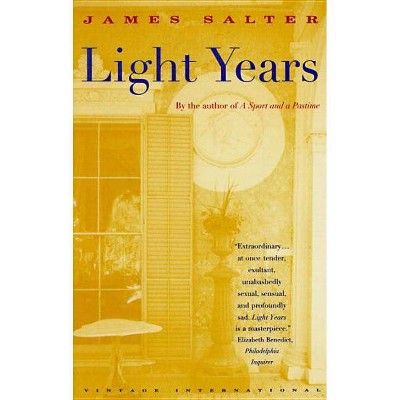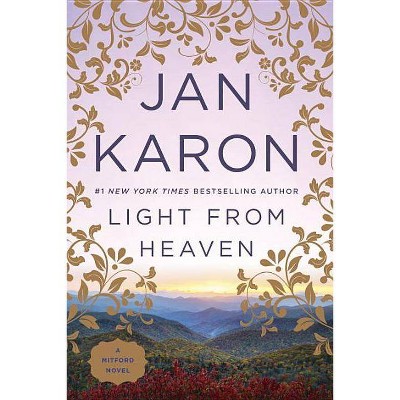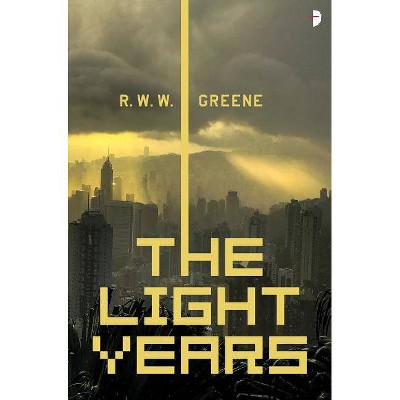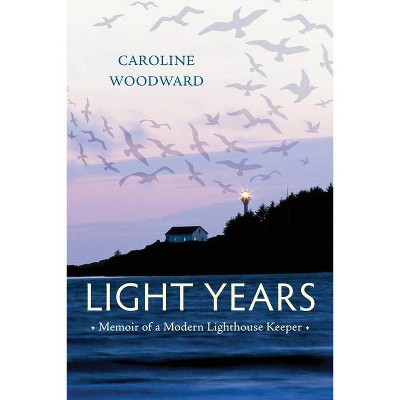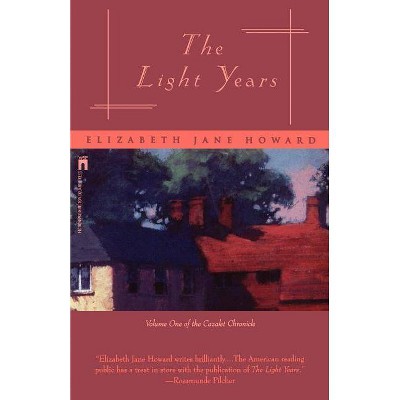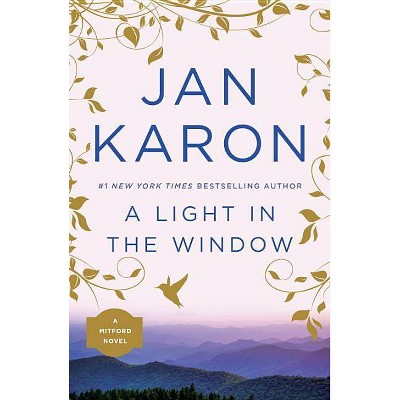Three Light-Years - by Andrea Canobbio (Paperback)
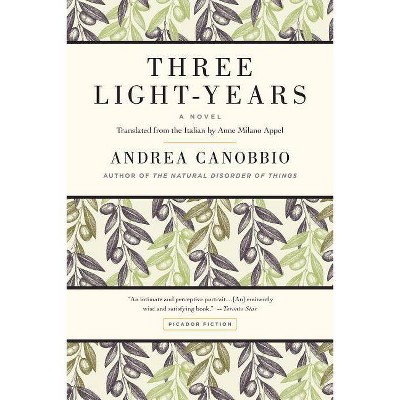
Similar Products
Products of same category from the store
AllProduct info
<p/><br></br><p><b> About the Book </b></p></br></br>"Complications ensue when two emotionally reticent doctors find themselves drawn to each other, despite their qualms about romantic entanglements"--<p/><br></br><p><b> Book Synopsis </b></p></br></br><p><b>A quietly devastating novel about the pain of hidden secrets and the cost of surrendered love</b> <p/>Cecilia and Claudio are doctors at the same hospital. They eat lunch together, sharing conversation and confidences. Each is recovering from a relationship that has ended but is not yet over: she is a vulnerable, young woman with a complicated family situation and two small children; he continues to live in the same building with his senile mother and his ex-wife and her new family. Though they are drawn together magnetically, life has taught them to treat that attraction with suspicion. <p/>But a chance encounter with Cecilia's sister, Silvia, shifts the precarious balance of the relationship between the two doctors. Claudio begins to see the difficulties inherent in his approach toward life-his weary Why not? response, rather than indicating a hunger for life and experiences, is simply a default setting; saying no would require an energy and focus he lacks. And just when Cecilia comes to the realization that she loves Claudio and is ready to commit to a genuine relationship, fate steps in once again. <p/>In lucid, melancholy prose, elegantly rendered into English by Anne Milano Appel, Andrea Canobbio sketches a fable of love poisoned by indecision and ambivalence in <i>Three Light-Years, </i> laying bare the dangers of playing it safe when it comes to matters of the hear</p><p/><br></br><p><b> Review Quotes </b></p></br></br><br><p>"An intimate and perceptive portrait . . . [An] eminently wise and satisfying book." --<i>Toronto Star</i> <p/>"Intelligently engrossing . . . Canobbio's narrative comes to a breakneck, virtually cinematic conclusion that knots all the plot's threads into a convincing, though shockingly unexpected, dramatic conclusion, giving way to a reflection too bittersweetly true to reveal." --<i>Los Angeles Times</i> <p/>"Remarkable . . . [<i>Three Light-Years</i>] avoids the obvious pitfalls, largely as a result of [Canobbio's] acuity and inventiveness, the specificity and density of his detail, the elegance of his style, and the depth of his psychological insight. . . . Even if Chekhov's name weren't invoked, we might think of him when we read Canobbio." --<i>The New York Review of Books</i> <p/>"These are fine character portraits, of people brought together and continuing in various orbits around one another--Cecilia is drawn to Claudio, but keeps him at a certain distance; withdrawn Claudio is head over heels in love but doesn't know how to act on it; Silvia's appearance adds yet another complicating twist to the whole mess . . . Canobbio's is an anything-but-conventional but quite convincing relationship novel, with his characters' realistic flaws openly displayed." --<i>M. A. Orthofer, The Complete Review</i> <p/>"In <i>Three Light-Years</i>, Andrea Canobbio's lush and meditative new book, a son traces the unlikely love triangle that leads to his eventual birth. It's wonderful to have another Canobbio novel available to the English-language reader." --<i>Nathan Englander, author of What We Talk About When We Talk About Anne Frank</i> <p/>"<i>Three Light-Years</i> is a stunning novel that lives at the bright intersection of imagination and memory, where a son may reconstruct the mystery and wonder of his birth and his parents' lives while also entrancing the reader with promises of hope: for great love, for happiness, and for catharsis. The novel is far more than a love story; it is a meditation on the good surprises that even the most desperate lives hold. And it is a delight." --<i>Ben Schrank, author of Love Is a Canoe</i> <p/>"Canobbio spans these lives with a prose style that reads as plain, without sudden jolts, that seems adapted to the rhythm that the characters of the book give their own lives. But this is only how it reads--because in fact a great deal of skill is needed to maintain such a constant pace and, above all, to also bind the reader to the text, using nothing but the pure force of language." --<i>Roberto Ferrucci</i> <p/>"The tension builds--from placid it becomes frenzied. First we admire Canobbio as a painter of details, as a parser of the quotidian, as a sketcher of feelings and emotional states that we all recognize. And then we find ourselves entangled in a how will it end cliffhanger, and even if the final outcome is certain and predictable, that doesn't make the torment any less. Surprise is born from a communal place, and this is art . . . Leaving the thread of the plot in the hands of the narrator . . . Canobbio lends each protagonist the dignity of his or her own perspective, in alternating chapters . . . and directs the distribution and intersection of information with a subtle skill. But the real tour de force is in fact this strange ulterior narrator [the son that results from the love triangle at the novel's center], who must find things he already knows surprising, and must relive, through the eyes of others, the fact that he is at once the master and the product of this narrative universe . . . Without any evidence of stylistic rupture, the text is rife with cracks. In the mystery of time, realism has found a terrifying ally. If realism manages to capture this mystery, it remains on its feet; otherwise, it crumbles spectacularly. Those who read for more than just plot will find in Three Light-Years a kind of suspense centered entirely on this duel, the most difficult a novel of this genre can undertake. It's a duel that can't be won hands down, but only ever by the skin of your teeth--which is precisely the beauty of it." --<i>Daniele Giglioli, La Lettura, Corriere della Sera</i> <p/>"It's the author's prose: sparkling, evocative, that descends into minute particulars in order to take the narrative's temperature, or to limn a character's personality, and then zooms back out into the macroscopic, the universal." --<i>Grazia</i> <p/>"Canobbio's novel, written with a lucidity and a stylistic mastery that has few equals in our contemporary literature, seems to tell the story of a family. It seems to be the most traditional of realist novels, and in part, in certain respects, it is that too. Its plot is built of small events that grip the reader tightly until the last page, alongside an emotional investigation of stunning and ironic profundity. But, in truth, it is a desperate attempt to say I, to ask the reader to approach the opening of the shell and look inside, after having admired its outside perfection. This is why the person telling the story conceals himself behind invention from the first . . . and yet continually peeks through the pages with brief insertions during which he gives himself voice, reclaims attention . . . These are cracks, these small interruptions during which the narration talks about himself, but they are also geysers that, in erupting, break the husk of form. And these are what give meaning to everything, negating the seductive lie of a family tale, invented to tie up all the loose ends. And we are there, admirers standing before these cracks, watching as everything that was buried beneath the earth rises up with a furious candor." --<i>Andrea Bajani, Il Sole 24 Ore, Domenica</i> <p/>"Andrea Canobbio's new novel is a kind of emotional mystery novel: the story of a love triangle in which there are no forgone conclusions, and you want to race through page after page to find out how it all ends. And yet the quality of Canobbio's prose . . . gives so much pleasure that it would be a shame to waste it by reading too quickly . . . The impeccably woven narrative begins slowly and then becomes ever more urgent . . . Canobbio is very good at describing the emotional states of his protagonists and at describing their lives, punctuated by trivial daily habits." --<i>Anna Folli, Gazzetta di Parma</i> <p/>"[Three Light-Years] confronts, with prose that is both limpid and compelling, with a narrative that is both direct and composed of concentric circles, one of the issues that most plagues our time: the inability to speak our emotions . . . Three Light-Years plumbs the depths of love, of friendship, of familial bonds, and of the equilibriums established between adults and children, with a lightness and a profundity that triumph, page after page. Pulling the reader inside the story, as if into a whirlpool, Andrea Canobbio's novel reveals itself to be one of the most convincing books by an Italian author to come out in the past few years." --<i>Alessandro Mezzena Lona, Il Piccolo</i> <p/>"It's a complex and curious narrative structure . . . [and] it reveals much about the precarious nature of perception and the frightening fragility of love. A sad and melancholy tale, but also an exhilaratingly passionate one." --<i>Bill Ott, Booklist</i></p><br><p/><br></br><p><b> About the Author </b></p></br></br><b>Andrea Canobbio</b> was born in Turin, Italy, where he currently lives. An editor at the publishing house Einaudi, where he has headed the foreign fiction department since 1995, he is the author of <i>The Natural Disorder of Things</i> (FSG, 2006); two memoirs; and one collection of short stories. <i>Three Light-Years</i> won Italy's prestigious Mondello Prize in 2013. <b>Anne Milano Appel</b>, PhD, is an award winning literary translator. Her latest translations from the Italian include Claudio Magris's <i>Blindly</i>, Goliarda Sapienza's <i>The Art of Joy</i>, and Giovanni Arpino's <i>Scent of a Woman</i>. Her work has been awarded the John Florio Prize for Italian Translation (2012) and the 32nd Northern California Book Award for translation in fiction (2013).
Price History
Price Archive shows prices from various stores, lets you see history and find the cheapest. There is no actual sale on the website. For all support, inquiry and suggestion messages communication@pricearchive.us
